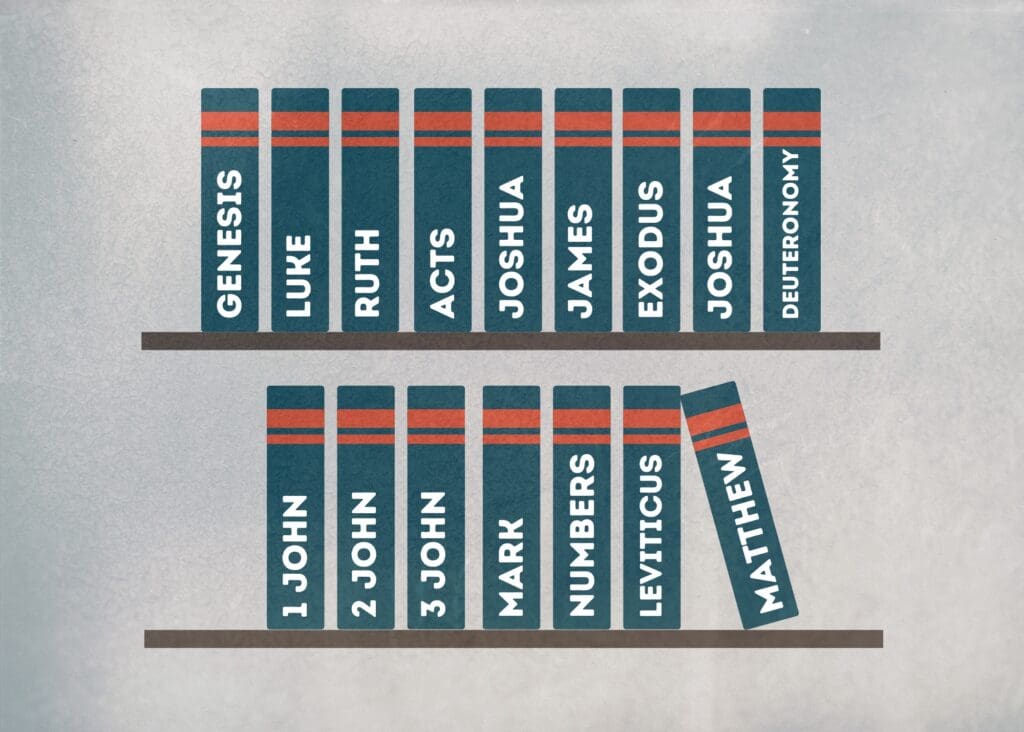What does “hope” mean?
I am a translator, and my work involves parsing meanings of words to their core components with the purpose of identifying functional equivalents across languages. So naturally, this is where I began with a word like “hope.”
The word “hope” is an abstract noun, which by nature is difficult to define and, therefore, challenging for Bible translators. Fortunately this is of no consequence to a speaker, because the definition of a word is secondary to its usage. We don’t have to be able to define a word in order to use it appropriately or accurately. Not only that, we have been endowed by our Maker with an incredible capacity for creativity. This means that the speaker of a language is able to take a known word and place it in an entirely new context, perhaps one never before uttered, which breathes new life and meaning into the word.
Linguists and translators know that this is why studying context is essential for understanding individual words. In fact this, to me, is one of the reasons that God’s Word can be described as living and active. God, in His creativity, has taken human language and placed it in contexts that redefine our very own language. He redeems words. But I digress. More on definitions later.
How does hope intersect with everyday life?
Much as I love the world of ideas, I am also deeply compelled to find the intersection between those ideas and my everyday messy life. When I read about “hope” in the Bible, I am not content while it remains an abstract concept in my mind. I want to know how and when this idea fits into my everyday life. What in the world does hope have to do with bleaching vegetables or bathing children? What is the effect of the abstract on the real?
We need to begin by looking at how we define “hope.” In English, the word “hope” is most often used to express a desire for something to happen, or having some kind of feeling of expectation. It is a word we use everyday, and we can think of many examples of how it’s used. “I hope there is a parking space in front of the store when I get there.” “I hope it rains today.” “I hope God will come through and grant us our work permits.”
In fact, we may “hope” for something the same way we are said to have “wishful thinking.” But ‘wishful thinking’ often implies that the thing you are hoping for is beyond the realm of possibility, maybe even that you are living in a fairy tale land.
We also may talk about “feeling hopeful,” which normally refers to having a positive outlook on the future. In this case, we’re doing our best to not entertain the possibility of a negative outcome. In a worldly estimation, this is sometimes considered naïve. Only people who have not experienced significant disappointment or setbacks could honestly feel this way. Thus, a hopeful Christian is either quickly dismissed or found to be deeply compelling. One might ask, “Are you for real? Or is heaven just wishful thinking?”
The Bible paints a different picture of hope.
Romans 5 offers clear insight for understanding hope in the everyday. It provides the grounding for this abstract idea — and that grounding is suffering. I know this seems like a contradiction of “hope” as we often understand it in the English language.
Consider the opening verses of Romans 5:
Therefore, since we have been justified through faith, we have peace with God through our Lord Jesus Christ, through whom we have gained access by faith into this grace in which we now stand. And we boast in the hope of the glory of God. Not only so, but we also glory in our sufferings, because we know that suffering produces perseverance; perseverance, character; and character, hope. And hope does not put us to shame, because God’s love has been poured out into our hearts through the Holy Spirit, who has been given to us. (Romans 5:1-5 NIV)
I want to focus especially on verses 3-4, with that famous progression which begins with suffering and ends in hope. “Not only so, but we also glory in our sufferings, because we know that suffering produces perseverance; perseverance, character; and character, hope.”
In this context, we see that with God, hope is not merely wishful thinking. Biblical hope is God’s response to human suffering. But to be a true antidote to suffering, Biblical hope taps into some key assumptions. First, it relies on the fact that human beings base their trust on past experiences, so Biblical hope is centered on God’s working in history. Second, it relies on the unchanging character of God as a promise keeper. And third, its scope is eternity.
Biblical hope does not ignore the reality of suffering that we live in or the fact that we tend to base our future decisions on past experiences.
To me, this is another example of God’s amazing grace coming toward us. He always meets us where we are. Thus, Biblical hope does not ignore the reality of suffering that we live in or the fact that we tend to base our future decisions on past experiences.
How about you?
Think of a time of suffering in your own life — losing a loved one, facing the disappointment of canceled plans, experiencing betrayal, debilitating sickness or constant pain, or maybe just enduring the excruciating heat of the tropical climate you live in. Recall the point at which you felt most helpless. That feeling of helplessness was a reckoning with your weakness and your basic inability to control your circumstances, because if you could, you certainly would escape them. (Many of us continue trying our hand at escapism every day.)
Then, in the midst of this reckoning with your helplessness, you were gifted peace. Realizing your inability to change your present circumstances of suffering, you let go of striving to do so. And when you did, you breathed a sigh of relief at the peace that washed over you.
We add to our own suffering by trying to be our own saviors.
We add to our own suffering by trying to be our own saviors. “I must fix this,” we say. But our helplessness is a gift because it allows us to turn to God in prayer and say, “You, who are able, You, who are worthy, please fix this.”
Then God says to us in the stillness of our hearts, “I already have. Trust me.” And hope is born. Do you see it? Verse 6 reveals how hope is made possible. “You see, at just the right time, when we were still powerless, Christ died for the ungodly” (Romans 5:6).
Revisiting our text
Let’s go back to verses 3-5: “Not only so, but we also glory in our sufferings, because we know that suffering produces perseverance; perseverance, character; and character, hope. And hope does not put us to shame, because God’s love has been poured out into our hearts through the Holy Spirit, who has been given to us.”
Suffering seems so real. Hope seems like wishful thinking.
Suffering seems so real. Hope seems like wishful thinking. But let the Bible teach us that suffering is the pathway to hope. Suffering is real but also temporary. Hope ushers in the very real, that which lasts forever. Hope renders suffering meaningful as a path to eternity with God.
How is this possible? The suffering still hurts. Hope is not escapism. Hope is, in fact, getting as real as it gets.
You know in Romans 8 where it describes creation groaning in anticipation of redemption? I feel those words in my gut. They resonate with me. Waiting is so painful. But why? Why is it so painful? Could it be because we already know a taste of the goodness that awaits us?
This is how we are able to rejoice in suffering: by recognizing that the very goodness of God that we have already tasted is what produces in us this agonizing hope. You see, at just the right time, when we were still powerless, Christ died for the ungodly. I have known the sweetness of comfort, therefore I long for it. This is what is behind Job’s ability to say, “The Lord gives and the Lord takes away. Blessed be the name of the Lord!” It’s not a skewing of bad = good and good = bad. Bad always equals bad. But rather, bad + God = good.
Lamenting our way to hope
Again, Romans 5: We know that suffering produces perseverance; perseverance, character; and character, hope. How does this progression work? Is it automatic? I think we can argue that it isn’t, which is why I regard hope as a discipline. Suffering doesn’t automatically result in perseverance. Plenty of people give up and give in in all kinds of ways. However, it is those like Jacob, who wrestle with God (Genesis 32:26), that end up with the blessing.
Wrestling with God in suffering requires perseverance through lament. “I will not let go until you bless me!” And lament puts us on the path to hope. Often we think of lament as complaining or expressing our grief to God, but really, lament is an expression of hope, of that eager longing for the fulfillment of the promises of God.
True lament moves the heart of God.
The Bible teaches that lamenting is not just a way to blow off steam. True lament moves the heart of God himself. Consider His words to Moses: “Moreover, I have heard the groaning of the people of Israel whom the Egyptians hold as slaves, and I have remembered my covenant” (Exodus 6:8). We know the rest of the story. The Israelites cried out for God to deliver on His promises. And so He did! And He did so in the most incredible way, bringing the most amount of glory to Himself.
Lament cements in our hearts the fact that we must look to God for redemption, not to ourselves. When we engage in lament, we anchor our souls in the promises of God.
Out of the depths I cry to you, Lord;
Lord, hear my voice.
Let your ears be attentive
to my cry for mercy.
If you, Lord, kept a record of sins,
Lord, who could stand?
But with you there is forgiveness,
so that we can, with reverence, serve you.
I wait for the Lord, my whole being waits,
and in his word I put my hope.
I wait for the Lord
more than watchmen wait for the morning,
more than watchmen wait for the morning.
Israel, put your hope in the Lord,
for with the Lord is unfailing love
and with him is full redemption.
He himself will redeem Israel
from all their sins.
(Psalm 130 NIV)
This is hope.
Hope is not wishful thinking. Hope says, “You promised, now fulfill your promise!” Hope is both the evidence that we have seen the goodness of the Lord and the confidence that we will see it in its fullness.
Romans 5 also pointedly states that this is not something you can muster on your own. Rather, it is dependent on the Holy Spirit. Verse 5 states, “And hope does not put us to shame (i.e. hope results in confidence), because God’s love has been poured out into our hearts through the Holy Spirit, who has been given to us.”
This is hope. Jesus came, He died, He rose, He will come again.
Again Romans 5, this time verse 3: “We know that suffering produces perseverance; perseverance, character; and character, hope.”
In this verse, the word that gets translated “character” in English refers to a “proven genuineness” or “having stood the test.” Again, we are on the path to the really real, to the enduring and eternal. Suffering begets perseverance, which begets a proven genuineness. This is the opposite of escapism and wishful thinking. It is God’s power in our weakness proving not our character but His — His unchanging goodness as expressed through His Son Jesus’ own suffering. We are not “hoping” for something that we have no assurance will happen. We are grounded in the reality of God’s redemption through suffering with Him. This is hope. Jesus came, He died, He rose, He will come again.
Our response: worship
From this exploration of Romans 5, we can conclude that for the believer, hope is the confidence that, by integrating God’s redemptive acts in the past with trusting human responses in the present, the faithful will experience the fullness of God’s goodness both in the present and in the future.
So, based on our redeemed, Biblical understanding of the word “hope,” our new question to ponder is this: “What is a trusting human response to the redemptive acts of God in the past?” One response, I believe, is worship. Worship is how we practice the discipline of hope.
To declare the goodness of God in the face of suffering expresses a trust that, even though I am bound by time, space, and this aging body, God sees all, and He sees past time. Such a trust is rewarded by His peace and presence as we take time to meditate on His promises, to lament, pray, and sing. Thus we are able to say together with the Psalmist:
I remain confident of this:
I will see the goodness of the Lord
in the land of the living.
(Psalm 27:13 NIV)
Holy Bible, New International Version®, NIV® Copyright ©1973, 1978, 1984, 2011 by Biblica










